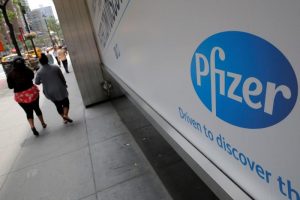Pharma sector: How much price control is too much price control?

KV Prasad Jun 13, 2022, 06:35 AM IST (Published)
 Listen to the Article (6 Minutes)
Listen to the Article (6 Minutes)
Summary
The BJP government is building a new health insurance paradigm that will ideally permeate to 50 crore Indians.
Medicine, as we all know, is a highly emotive subject the world over. Even more so for a highly self-pay market like India as patients from the low-income strata often end up at the brink of an economic crisis each time a medical episode strikes.
For the last few months, the drug pricing versus affordability debate has been in active discussions. The BJP government is building a new health insurance paradigm that will ideally permeate to 50 crore Indians. Likewise, the policy side is also stepping up. Let us dwell on that first:
India’s drug pricing watchdog, the National Pharma Pricing Authority of India or the NPPA, disclosed in February how brazenly four patients were overcharged by a handful of hospitals in Delhi NCR.
The report listed exorbitant expenses charged by the hospitals of which one grabbed more attention. It was on drugs prescribed to those patients.
The report said that the total cost of medicines under price control was 4.1 percent but the total cost on non-scheduled drugs (not under price controls) was way higher at 28 percent.
The NPPA noted ‘amply clear’ that to claim higher margins, doctors and hospitals were prescribing non-scheduled branded drugs. The authority hinted at a foul play. Despite medicines available under the Drug Price Control Orders (DPCO), medicines that had dodged the price net were in higher circulation.
A nexus between drug makers and the hospitals was spotted. Drug makers were launching new fixed dose combinations or introducing new doses to beat price caps. A clear trend of a high uptake of nonscheduled drugs emerged. Sales of non-scheduled drugs was twice as that of scheduled drugs in 2017. The NPPA asserted the need for policy intervention as a whip.
The government think tank has taken note of the loopholes in the policy framework. It is considering a new drug pricing regime that may be rolled out in 2018. A few options are being considered. Those include linking drug prices of non-scheduled drugs to the Wholesale Price Index or WPI and establishing a separate index for pharma products.
Currently, prices of only scheduled drugs are linked to the WPI Index while prices of drugs not under controls can be hiked by up to 10 percent annually. According to analysts, the step would be a big blow for the industry as virtually all drugs would be linked to the vagaries of the WPI index. To further illustrate, in FY17 Pfizer saw its revenue impacted as prices of its NLEM (National List of Essential Medicines) listed drugs had to be reduced to adjust to a negative WPI. By that logic, if the entire industry is forced to recalibrate to a negative pricing index, the industry will get sucked into a downward spiral, feel analysts.
The other option under consideration as per reports is widening the span of price controls to a drug instead of the present system of sparing a few compositions and strength.
While the government has not disclosed the final contours of the plans, drug companies are concerned of lop-sided decisions without a due consultation process. In fact, Pfizer thinks ‘an unpredictable expansion of price control continues to remain the single most significant challenge for the industry’. Novartis too points out a similar worry, that any expansion of the ‘scope of the DPCO will pose additional challenges’. The other risks for companies would be the government’s likely plan to move towards writing prescriptions without referring to the brand name i.e. only generic names of drugs. That has its own set of challenges, a topic for a different day.
Repercussions of an expanded span of price control would not just be limited to profits of companies, cutting back on research and development spend but possible curtailing of supplies of key drugs as well. This is demonstrated with the widely reported recent shortage of drug furoped or furosemide. The lifesaving drug is a diuretic mostly prescribed for babies with heart conditions. The diuretic helps in reducing fluids in the body hence reducing the load on the baby or infant’s heart. A 40 percent scarcity was reported for the drug. Why? In one blow, the NPPA ordered a drastic downward revision of the drug in November 2017 to 0.29 paisa per ml. Overnight, the product became unviable for drug companies resulting in shortage. The NPPA has now revised the price higher to Rs 2.6 per ml.
Drug companies also allude to the March 2016 order of banning 344 fixed dose combination drugs, alleged to be irrational. While there was a very strong case to ban many of these drugs which had a cocktail of chemicals, many companies aver the decision was sudden and unscientific, impacting availability of some drugs that were safely used for years.
Another example of government regulation was on medical devices – on stents and knee caps. An example of the impact of price controls can be illustrated by sharing an example on the stent market. Prices of all stents were capped in Feb 2017 – slashing prices by almost 85 percent. Currently prices of bare metal stents are capped at Rs 7,660 (revised from Rs 7260 in Feb 2018) and Prices of drug eluding stents at Rs 27,890 (revised from Rs 29,600 in Feb 2018) Prices of other essential equipment such as cardiac guide wire, catheter etc are also under price caps. The aim was to generate volumes in the stents to cover the price fall. Multinational companies (MNCs) such as Abbott, Boston Scientific and Medtronic have since withdrawn a few of their stents from the market citing lack of commercial viability.
The real issue that experts point to is that MNC stent manufacturers are not introducing the latest version of the stents fearing excessively rigorous regulations. As of now not introducing the latest version of the stents is not hurting. This is because newer version of stents are minor variations to those the latest MNCs have not introduced. Also many Indian companies such as SMT in Surat have stepped up to the plate in terms of production and research and development to fill the gap. But, experts point out that if an Indian patient who is ready to pay prefers the latest 2018 drug eluding stent by Abbott, he will be turned down or may seek the procedure abroad. Many hence are finding options in Sri Lanka, Singapore and Dubai. Experts say slower medical tourism into India is another possible long-term fallout.
The case made out here is not about the adverse effects of too much government control. The solution is in finding the equilibrium between medical costs and drug producers. Pharma companies are hoping for rational options such as differential pricing that is pay for a drug or medical device based on the paying capacity. And it seems government bodies such as think tank Niti Aayog are listening. Proposals such as de-linking Drug Price Control Order from the National List of Essential Medicines has been reported to be one such option.
This is a year of reckoning for the pharmaceutical and the healthcare industry. With the brass stacks being worked on the National Health Protection Scheme (Ayushman Bharat) and a roll out of a brand-new pricing policy, there is hope for sustainable policy benefiting both companies and patients alike.

Elon Musk forms several ‘X Holdings’ companies to fund potential Twitter buyout
3 Mins Read
Thursday’s filing dispelled some doubts, though Musk still has work to do. He and his advisers will spend the coming days vetting potential investors for the equity portion of his offer, according to people familiar with the matter

KV Prasad Journo follow politics, process in Parliament and US Congress. Former Congressional APSA-Fulbright Fellow










 Listen to the Article
Listen to the Article  Daily Newsletter
Daily Newsletter








